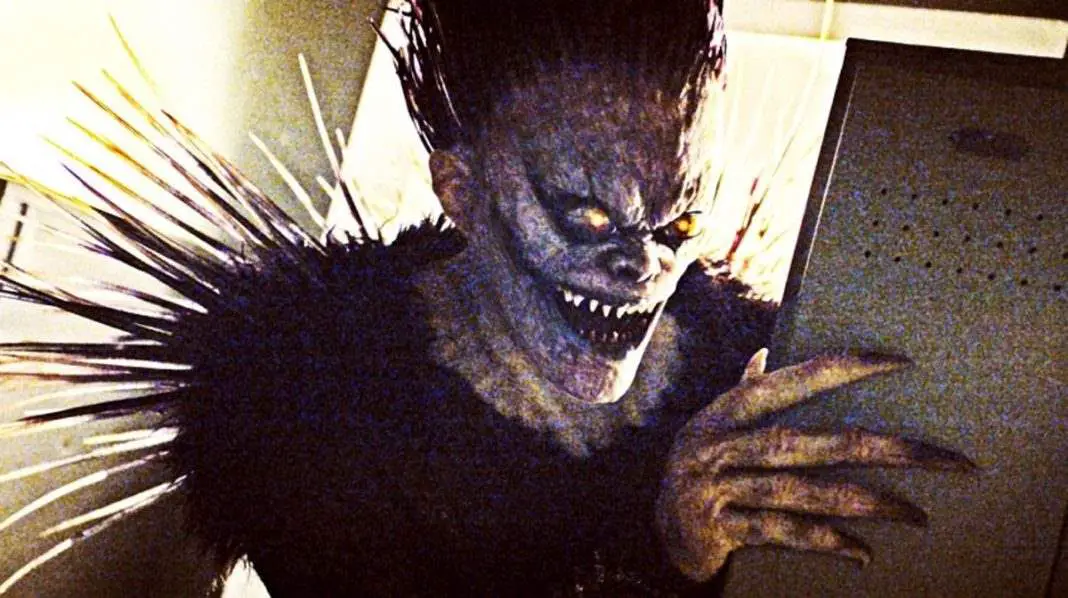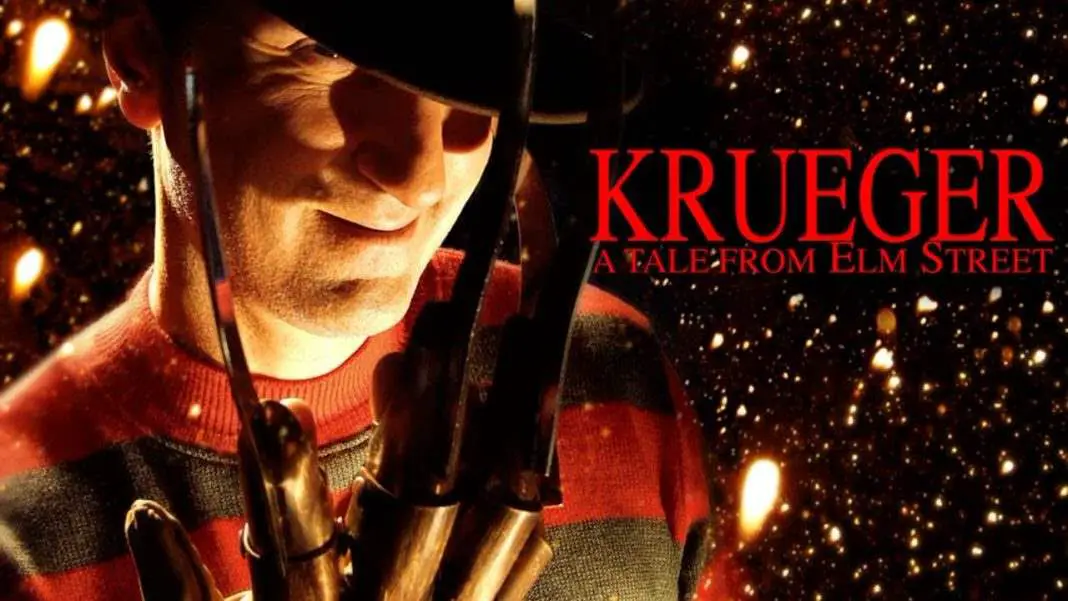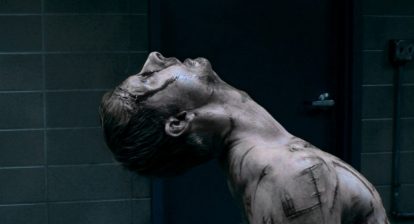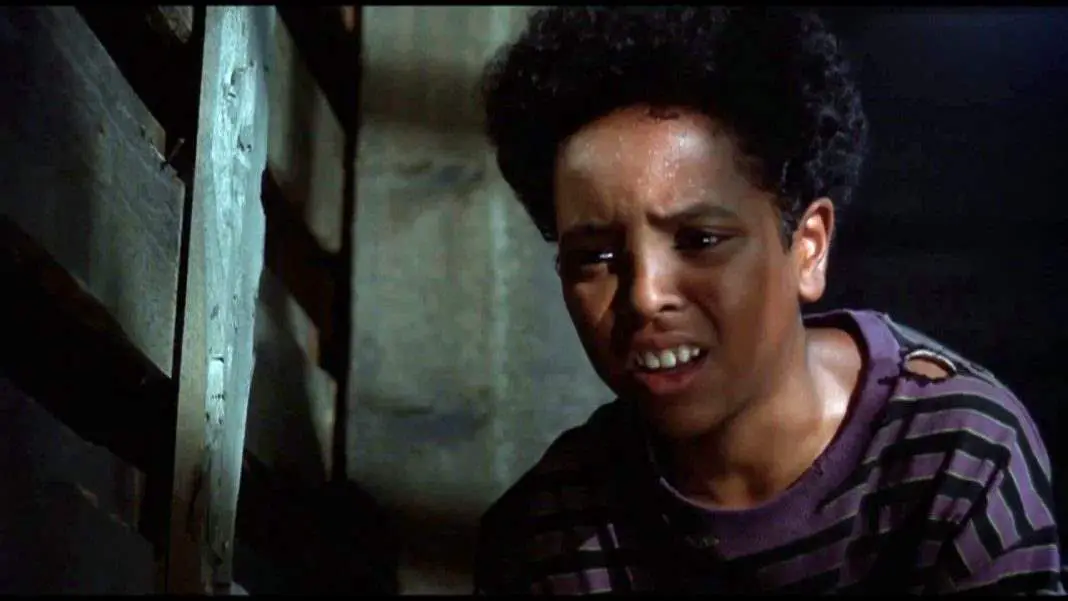People have been having some very strong reactions to Adam Wingard’s American adaptation of Death Note. Fans of the anime have been almost overwhelmingly negative, while people who aren’t as familiar with the source material have been a little kinder. I’ll admit, I fall into that trap a bit myself. I have some familiarity with the source material—I’ve read a bit of the manga and have seen the earlier live-action adaptations. But even though I’ve been a longtime fan of director Adam Wingard, I went into Death Note with low expectations.
And I wound up loving it. I don’t just think it’s a fun movie, I think it’s a smart movie. It’s not getting much credit for that, so as controversial as it might be, this is my honest take. I think Death Note works and works really, really well when you keep in mind that this is an American adaptation and that the changes to the source material are not necessarily there to update the story for American audiences, but to update the story for the climate of American cinema and storytelling as a whole.
The biggest criticism, which is on one hand very fair, is the whitewashing of the main character, Light. He could easily have been portrayed by an Asian American actor. But for probably the only time I can think of, this is an instance where recasting the role with a white actor makes perfect sense. Because when you take the concept of Death Note—the idea of a high school student who can write any name down in a book and that person will drop dead—and apply it to an American setting, it immediately becomes the story of a school shooter.
That’s what Light is and the first death, in his first scene with Ryuk, makes that very clear. Light is killing a bully, someone he feels personally wronged by. He may be empathetic, but he has so many of the defining characteristics of people like Eric Harris and Dylan Klebold. Light hates the system, he hates the hierarchy of high school and feels like the people who should be focused on making things better for students don’t actually give a shit about them.

Of course, high school massacres are essentially momentary. The students who commit them are not serial killers. They explode all at once and are never left to deal with the ramifications of what they’ve just done because they’re either killed or they go to prison for the rest of their lives. Light gets away with it and continues to get away with it, painting himself into a corner where his initial moral justifications become blurrier and blurrier.
Light’s goal, his bigger picture, one which he orchestrates with Mia, is truly the core of Death Note. Light is not just Light, he’s Kira. He’s creating the persona of a god, one who can simply strike down any person on the globe at any time. This elevates Death Note beyond simply being a metaphor for high school violence. At the same time, this plot, the whole overriding theme, speaks just as deeply to the climate of American high schools.
In high school in the US, especially in the middle or upper-middle class, it is beaten into our heads that it is up to us to save the world. We have it in us to become world leaders, join the peace corps, whatever. We’re told over and over again that the world has many problems, even that it’s sick, but we’re the future generation and we can fix everything. How? No idea. That’s up to us, so we better figure out how to do it on our own. It’s an insane amount of pressure to drop into a teenager’s lap. It’s also completely delusional.
 But this mentality makes everything in Wingard’s Death Note make perfect sense. When that notebook literally falls into his lap, Light thinks it’s the answer. He thinks this is how he’s going to save the planet. He can just take out anyone he wants at any time, but as it goes on he begins to have heavy doubts about what he’s doing and whether or not it’s really up to him to decide who’s good or evil, whether he should really be allowed to just kill anyone he wants.
But this mentality makes everything in Wingard’s Death Note make perfect sense. When that notebook literally falls into his lap, Light thinks it’s the answer. He thinks this is how he’s going to save the planet. He can just take out anyone he wants at any time, but as it goes on he begins to have heavy doubts about what he’s doing and whether or not it’s really up to him to decide who’s good or evil, whether he should really be allowed to just kill anyone he wants.
That’s the biggest reason fans of the anime are upset at the film, I think. Light in the anime and manga is a cold, calculating serial killer. Light in the movie is still doing those things, he just feels worse about them, and I think that gets mistaken for an excuse. Adam Wingard has said that part of the goal of the movie is to get Light to that point we find him at in the source material, to build him into that more recognizable character, and I buy that. He’s certainly more willing to do whatever it takes for the sake of self-preservation by the end of the movie.
But I think some fans miss the fact that they are getting everything they got out of the Light they know and love/hate from the source material—they’re just getting it from a different character. Mia is a new character, at first glance seemingly shoe-horned in as a romantic interest, but she’s so much more than that. On top of everything else, she’s our version of the Light in the anime. She has no moral gray area, she doesn’t feel bad about anything. She’s a thrill killer. She’s a Lucky McKee character who stumbled into an Adam Wingard movie and is having a great damn time.
Mia also vaguely represents the uncomfortable (but not at all uncommon) serial killer fandom. There are plenty of people who have whole Tumblrs dedicated to Jeffrey Dahmer, referring to him as their boyfriend, etc. It’s nothing new. Women married guys like Ted Bundy and Charles Manson in prison because they became fascinated by—even admired, to an extent—the crimes they committed. That is Mia’s relationship to Light. She becomes enamored by him when she sees this power he possesses and how ready he is to use it. But she’s only actively affectionate toward him when he’s actually killing people. Whenever he doubts himself, she becomes closed off. And when he stays on that course, she wants the Death Note for herself.
The twist here, ultimately, is that Mia is even crazier—even a lot crazier—than Light is. This is great not only on a thematic level, but a purely cinematic one as well. This version of Death Note has heavy echoes of dark, high school black comedies that have come before it. When you look at the two leads, Death Note essentially is a clever inversion of Heathers. Now it’s the semi-popular cheerleader who’s the complete and total sociopath and the thoughtful, moody poet boy who’s in completely over his head.
 Lakeith Stanfield’s casting as L has drawn some controversy because it’s been painted as making the black character the villain, a trope that truly has been weirdly common lately. But being mad at casting a black man as L because he’s the “villain” doesn’t make any sense. It’s just as absurd as if someone would get mad if Idris Elba were to be cast as Dr. Loomis in a new remake of Halloween. L is not the bad guy. Light is the bad guy in the source material, even if he’s the protagonist. He arrives at that point by the end of the film and is still doing a lot of terrible shit throughout. Mia would kill anyone she thought needed killing without thinking twice about it. Ryuk is and will always be the clear, truly evil presence of the piece.
Lakeith Stanfield’s casting as L has drawn some controversy because it’s been painted as making the black character the villain, a trope that truly has been weirdly common lately. But being mad at casting a black man as L because he’s the “villain” doesn’t make any sense. It’s just as absurd as if someone would get mad if Idris Elba were to be cast as Dr. Loomis in a new remake of Halloween. L is not the bad guy. Light is the bad guy in the source material, even if he’s the protagonist. He arrives at that point by the end of the film and is still doing a lot of terrible shit throughout. Mia would kill anyone she thought needed killing without thinking twice about it. Ryuk is and will always be the clear, truly evil presence of the piece.
And as expectedly great as Willem Dafoe is as Ryuk, I’m even more grateful for the casting of Lakeith Stanfield because he knocks it out of the goddamn park. He is insanely good in this movie. He’s a fantastic foil for Light, odd, eccentric, but at the same time being totally removed from characters like Sherlock Holmes. After all, Holmes is defined by his aloofness and inability to connect with people, whereas L is literally defined by human connection. He’s a genius when it comes to investigation, but he’s also deeply, deeply emotional. That’s not only the thing that draws him into such interesting conflict with this version of Light, it’s also the only common ground between the two, and one that they’ll never totally realize they share.
Death Note might not be what fans expected and I completely get that. It’s not what a lot of fans wanted and I’m not saying anyone has to love it. I can only explain why it worked for me and why I loved it so much more than I thought I would. If you’re still hesitant about it—well, I probably spoiled a bit, so I’m sorry about that. But I think there’s more to this film than people have really been willing to give it credit for. But it’s worth going into with a clean slate and an open mind.






